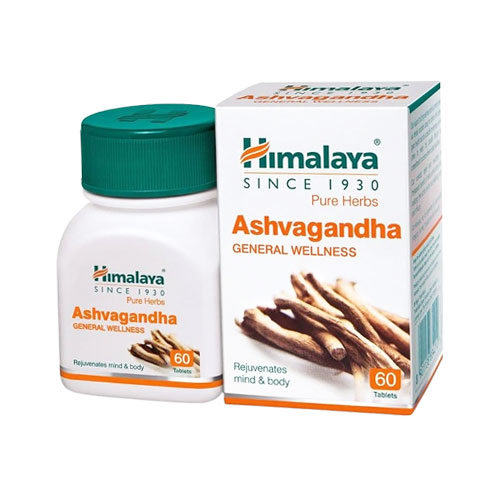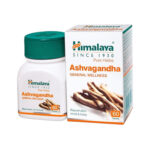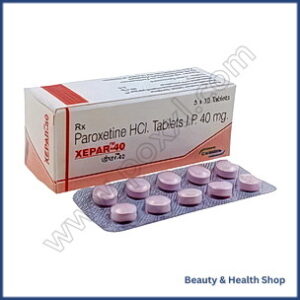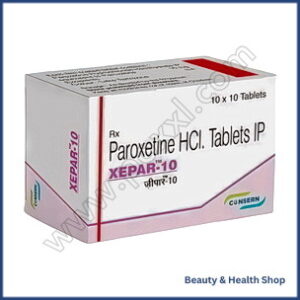ADDICTION
ALCOHOL DEPENDENCE
QUIT SMOKING
ALLERGY
ANTI FUNGAL
FUNGAL INFECTION
FUNGAL NAIL INFECTIONS
ANTI-REJECTION DRUGS
ANTI WORM
ANTIBIOTIC
BACTERIAL INFECTIONS
ARTHRITIS
GOUT
OSTEOARTHRITIS
RHEUMATOID ARTHRITIS
BLOOD
LOW PLATELET COUNT
THROMBOPHLEBITIS
VARICOSE VEINS
COLON
ANAL FISSURE
PILES
ULCERATIVE COLITIS
DIABETES CARE
DIABETES INSIPIDUS
DIABETES TYPE
DIABETIC FOOT ULCERS
GLUCOSE MONITOR
EYES/EAR CARE
DRY EYES
EYE CARE
EYE EXAMINATION
EYE INFECTION
EYE LASHES
EYE PAIN
GLAUCOMA
OCULAR HYPERTENSION
UVEITIS
FEVER CARE
MALARIA
RHEUMATIC FEVER
TYPHOID FEVER
GASTROINTESTINAL
ACIDITY
CONSTIPATION
CROHN'S DISEASE
DIARRHOEA
GALLBLADDER STONES
INTESTINAL ULCERS
IRRITABLE BOWEL SYNDROME
MOTION SICKNESS
NAUSEA
Ashwagandha 250 mg (Ashvagandha)
| Active Ingredient (Generic Name): | Ashvagandha |
|---|---|
| Indication: | Increase the immunity, Natural stress reliever |
| Manufacturer: | Himalaya Drug Company |
| Packaging: | 60 tablets in one bottle |
| Strength: | 250 mg |
From: $36.00
If you’re seeking a natural approach to managing stress and improving overall well-being, Ashwagandha 250 mg might catch your interest. Its ancient roots hold promising benefits, but the question remains – how does it actually work in your body? Understanding the mechanisms behind its effects could shed light on why many people are turning to this herbal supplement.
Why is this medication prescribed?
Ashwagandha 250 mg is recommended to help manage stress and anxiety in individuals. This herbal supplement, derived from the Withania somnifera plant, is known for its adaptogenic properties, which can help the body cope with stressors more effectively.
By regulating the body’s physiological response to stress, ashwagandha may help reduce cortisol levels, the hormone associated with stress. Additionally, ashwagandha is believed to have anxiolytic effects, which can help alleviate symptoms of anxiety and promote a sense of calmness.
Research suggests that ashwagandha may also have neuroprotective effects, potentially benefiting cognitive function and overall mental well-being. This natural remedy is commonly used in traditional Ayurvedic medicine to support overall health and well-being.
As a natural alternative to pharmaceutical interventions, ashwagandha 250 mg may offer individuals a holistic approach to managing stress and anxiety. However, it’s important to consult with a healthcare provider before incorporating ashwagandha into your wellness routine to make sure it’s safe and appropriate for your individual needs.
How should this medicine be used?
To use this medication properly, follow the dosage instructions provided on the product label or as directed by your healthcare provider. Typically, Ashwagandha 250 mg (Ashvagandha) is taken by mouth with a full glass of water. It’s commonly recommended to take this medicine once or twice daily, depending on your healthcare provider’s directions. It’s important to stick to the prescribed dosage and not exceed the recommended amount unless advised by a healthcare professional.
You can take Ashwagandha with or without food, but consistency in how you take it is key for best results. If you forget a dose, take it as soon as you remember. However, if it’s close to the time of your next dose, skip the missed one and resume your regular dosing schedule. Don’t double the dose to catch up. Keep track of your usage and any effects you experience to discuss with your healthcare provider during follow-up appointments.
Other uses for this medicine
Considering its adaptogenic properties, this medicine is also explored for various other uses beyond its traditional applications for stress and anxiety management. Some studies suggest that Ashwagandha may help improve cognitive function and memory. It’s also being investigated for its potential to boost athletic performance and muscle strength.
Additionally, Ashwagandha is being researched for its anti-inflammatory properties, which could potentially benefit conditions like arthritis. Some preliminary studies indicate that this herb may have a positive impact on blood sugar levels, making it a subject of interest for those with diabetes.
Moreover, Ashwagandha is being studied for its potential role in improving male fertility and testosterone levels. However, it’s essential to note that more research is needed to confirm these potential benefits conclusively. As with any medicinal use, it’s important to consult a healthcare professional before using Ashwagandha for these alternative purposes to ensure safety and efficacy.
What special precautions should I follow?
Before taking Ashwagandha 250 Mg (Ashvagandha), it’s important to check your medical history first. Certain conditions or medications may interact with this supplement.
Always consult with a healthcare professional to confirm it’s safe for you to use Ashwagandha.
Check Medical History First
Before starting Ashwagandha 250 mg (Ashvagandha), make sure to consult your medical history for any potential special precautions to follow. It’s important to take into account the following points:
-
Allergies: Check if you’re allergic to any herbs or substances to avoid adverse reactions.
-
Medical Conditions: Evaluate if you have any existing medical conditions that may interact with Ashwagandha.
-
Medications: Review your current medications to prevent any potential interactions with Ashwagandha.
-
Pregnancy/Breastfeeding: If you’re pregnant, nursing, or planning to become pregnant, consult a healthcare provider before using Ashwagandha.
What special dietary instructions should I follow?
To enhance the benefits of Ashwagandha 250 mg, it’s important to maintain a balanced and nutritious diet. A diet rich in fruits, vegetables, whole grains, lean proteins, and healthy fats can complement the effects of Ashwagandha. Including foods high in antioxidants, such as berries, spinach, and nuts, can boost the overall well-being of your body and possibly amplify the positive impact of Ashwagandha on your health.
It is also recommended to limit the intake of processed foods, sugary snacks, and excessive caffeine. These items may counteract the benefits of Ashwagandha and hinder its effectiveness. Additionally, staying hydrated by drinking an adequate amount of water daily is essential for the efficient functioning of Ashwagandha in your system.
Moreover, some studies suggest that consuming Ashwagandha with a small amount of healthy fat, like coconut oil or avocado, may help with its absorption. Therefore, incorporating a moderate amount of good fats into your meals when taking Ashwagandha could potentially improve its bioavailability and effectiveness in supporting your overall health and well-being.
What should I do if I forget a dose?
If you forget a dose of Ashwagandha 250 mg, simply take it as soon as you remember, unless it’s almost time for your next scheduled dose. In that case, skip the missed dose and continue with your regular dosing schedule. It’s important not to double up on doses to make up for the missed one, as this can increase the risk of side effects.
To help you remember to take your Ashwagandha 250 mg regularly, consider setting a daily alarm or incorporating it into your daily routine. Keeping a pillbox or a medication schedule can also be helpful in ensuring you take your doses as prescribed.
If you frequently forget to take your medication or have trouble remembering, it may be beneficial to speak with your healthcare provider about potential strategies or tools that can help you stay on track with your treatment plan. Remember, consistency in taking your medication as directed is essential for it to be effective in providing you with the intended benefits.
What side effects can this medication cause?
Ashwagandha 250 mg may cause side effects that you should monitor.
Some of these side effects can be severe and require immediate medical attention.
If you notice persistent symptoms or experience any concerning signs, contact your doctor promptly.
Monitor for Persistent Symptoms
Be vigilant for any persistent symptoms that may arise as potential side effects of taking Ashwagandha 250 mg. These symptoms might include:
- Digestive issues such as upset stomach or diarrhea
- Drowsiness or sedation
- Changes in blood pressure
- Allergic reactions like rash or itching
Monitoring your body for any unusual or lasting effects is important when starting a new medication like Ashwagandha.
If you notice any of these symptoms lingering or becoming severe, it’s vital to consult your healthcare provider for further evaluation and guidance.
Some side effects can be serious. If you experience any of the following symptoms, call your doctor immediately:
Keep a close eye out for any serious side effects that may arise while taking Ashwagandha 250 mg, prompting you to promptly contact your doctor. Some side effects can be severe and require immediate medical attention. If you experience any of the following symptoms, seek medical help without delay:
-
Severe allergic reactions: Look out for symptoms like rash, itching/swelling (especially of the face/tongue/throat), severe dizziness, or trouble breathing.
-
Signs of liver problems: Watch for abdominal pain, persistent nausea/vomiting, yellowing of eyes or skin, dark urine, or unusual fatigue.
-
High thyroid levels: Symptoms may include unexplained weight loss, increased sweating, tremors, or rapid heartbeat.
-
Signs of low blood sugar: Be cautious of sudden sweating, shaking, fast heartbeat, blurred vision, dizziness, or hunger.
What should I know about the storage and disposal of this medication?
When storing or disposing of this medication, remember to keep it out of reach of children and pets. Store Ashwagandha 250 mg (Ashvagandha) in a cool, dry place away from moisture and direct sunlight. Avoid storing it in the bathroom or kitchen where humidity levels can fluctuate. Keep the medication in its original packaging to protect it from light and moisture. Make sure that the container is tightly closed when not in use to prevent air and moisture from affecting the product’s quality. Don’t transfer the pills to a different container unless instructed to do so by your healthcare provider or pharmacist.
When it comes to disposing of Ashwagandha 250 mg, follow any specific disposal instructions provided by your pharmacist or healthcare provider. Don’t flush the medication down the toilet unless instructed to do so. Instead, check with your local pharmacy or healthcare facility on the proper way to dispose of unused or expired medications. It’s essential to handle the disposal of medications responsibly to prevent environmental contamination and potential harm to others.
In case of an emergency/overdose
In the event of an emergency or overdose involving Ashwagandha 250 mg (Ashvagandha), promptly seek medical assistance by contacting poison control or visiting the nearest healthcare facility. If you suspect an overdose, don’t delay seeking help. Symptoms of an overdose may include nausea, vomiting, diarrhea, dizziness, or severe drowsiness. It’s important to provide healthcare professionals with information such as the amount of Ashwagandha consumed, the time of ingestion, and any other medications or supplements taken simultaneously.
When contacting poison control or visiting a healthcare facility, be prepared to share details about the situation. Medical professionals will assess the severity of the overdose and provide appropriate treatment. Don’t attempt to induce vomiting unless instructed to do so by a healthcare provider. Keep the Ashwagandha packaging or any remaining pills to assist medical personnel in determining the best course of action. Remember, prompt action is essential in cases of overdose to ensure the best possible outcome.
What other information should I know?
You should be mindful of potential interactions between Ashwagandha 250 mg (Ashvagandha) and any other medications or supplements you’re currently taking. Ashwagandha may interact with certain medications such as sedatives, medications for high blood pressure, and immunosuppressants. It’s important to consult with your healthcare provider before starting Ashwagandha, especially if you’re taking any prescription medications or other supplements to prevent any adverse effects or interactions.
Additionally, if you’re pregnant or nursing, it’s vital to speak with your healthcare provider before using Ashwagandha. While Ashwagandha is generally considered safe for most people when taken in appropriate doses, its safety during pregnancy and breastfeeding hasn’t been extensively studied. Your healthcare provider can provide guidance on whether it’s safe for you to use Ashwagandha in these circumstances.
Remember to follow the recommended dosage instructions and avoid exceeding the recommended dose unless advised by a healthcare professional. If you experience any unusual symptoms or side effects while taking Ashwagandha, contact your healthcare provider promptly for further guidance.
Brand names
Consider exploring various brand names under which Ashwagandha 250 mg (Ashvagandha) is marketed to find a reputable source for your supplement needs. When searching for Ashwagandha supplements, it is crucial to choose a trusted brand that adheres to quality standards. Below is a table showcasing some popular brand names offering Ashwagandha 250 mg products:
| Brand Name | Description | Price Range |
|---|---|---|
| Himalaya | Known for herbal supplements | $10 – $20 |
| Nature’s Bounty | Offers a variety of vitamins | $15 – $25 |
| NOW Foods | Well-established in the market | $12 – $18 |
| Gaia Herbs | Emphasizes organic products | $20 – $30 |
| NutriRise | Focuses on natural solutions | $15 – $25 |
Purchase From Licensed Pharmacies
Wondering where to buy Ashwagandha 250 mg products with confidence and assurance of quality? When looking to purchase Ashwagandha, it’s essential to buy from licensed pharmacies to guarantee the authenticity and effectiveness of the product. Licensed pharmacies adhere to strict regulations and quality standards set by regulatory authorities. By purchasing from these pharmacies, you can have peace of mind knowing that you’re getting a genuine Ashwagandha product that meets safety and quality requirements.
Licensed pharmacies often source their Ashwagandha products from reputable manufacturers, ensuring that the product you receive is of high quality and free from any contaminants. Additionally, buying from licensed pharmacies reduces the risk of purchasing counterfeit or substandard products that may not provide the desired health benefits.
Before making a purchase, verify that the pharmacy is licensed and authorized to sell Ashwagandha products. This information is usually displayed on their website or can be obtained by contacting the pharmacy directly. By buying from licensed pharmacies, you can trust the authenticity and quality of the Ashwagandha 250 mg products you’re purchasing.
To summarise
To conclude, making sure you purchase Ashwagandha 250 mg products from licensed pharmacies guarantees authenticity and quality. Licensed pharmacies adhere to strict regulations and quality control measures mandated by regulatory bodies. This ensures that the Ashwagandha 250 mg supplements you buy have undergone rigorous testing for purity and potency. By choosing licensed pharmacies, you’re safeguarding yourself against counterfeit products or those that may contain harmful substances. Additionally, licensed pharmacies often source their Ashwagandha products from reputable manufacturers, further enhancing the product’s quality and reliability.
In addition to quality assurance, purchasing Ashwagandha 250 mg from licensed pharmacies provides you with the assurance of proper storage and handling of the product. These pharmacies follow specific guidelines for storing supplements to maintain their efficacy. This attention to detail helps preserve the potency of the Ashwagandha 250 mg, ensuring that you get the maximum benefits from the product. Ultimately, buying from licensed pharmacies gives you peace of mind regarding the authenticity, quality, and effectiveness of the Ashwagandha 250 mg supplements you purchase.





